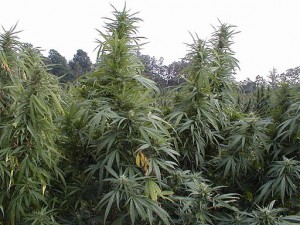Researchers: Marijuana Smoke as Dangerous as Tobacco Smoke
Preliminary findings in a study on marijuana reveal secondhand marijuana smoke may be as dangerous as secondhand cigarette smoke.
Matthew Springer, associate professor of medicine at University of California San Francisco and one of the authors of this newest study, says, “Both tobacco and marijuana smoke impair blood vessel function similarly. People should avoid both, and governments who are protecting people against secondhand smoke exposure should include marijuana in those rules.”
Researchers found blood vessel function in laboratory rats was reduced by 70% following exposure to secondhand marijuana smoke–similar to levels found as a result of tobacco smoke. Reduced blood vessel function can lead to serious health complications, including heart attack.
This research raises many questions. If secondhand marijuana smoke is dangerous, how safe can firsthand marijuana smoke possibly be? And just how safe are other methods of marijuana consumption? After all, many of them have not been thoroughly researched.
These latest findings underscore, once again, that marijuana may be many things, but “harmless” simply is not one of them.
Read more about this latest research here.
Read our most popular blog post of all time, “Busting the Myth Marijuana is Harmless,” here.

 We’ve said before that that any effort to legalize marijuana is going to bring unintended consequences. One of those consequences, apparently, is campaign contributions.
We’ve said before that that any effort to legalize marijuana is going to bring unintended consequences. One of those consequences, apparently, is campaign contributions. Arkansans for Responsible medicine, the same Arkansas group that pushed to legalize marijuana in 2012 and 2014, has secured approval to begin gathering signatures to place a similar measure on the ballot in 2016.
Arkansans for Responsible medicine, the same Arkansas group that pushed to legalize marijuana in 2012 and 2014, has secured approval to begin gathering signatures to place a similar measure on the ballot in 2016.